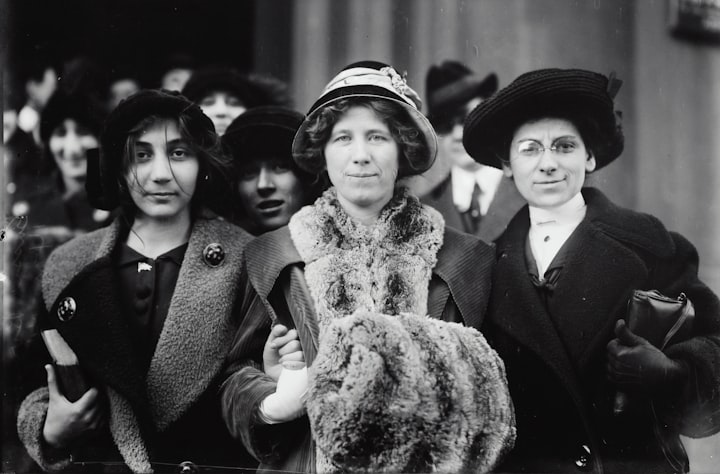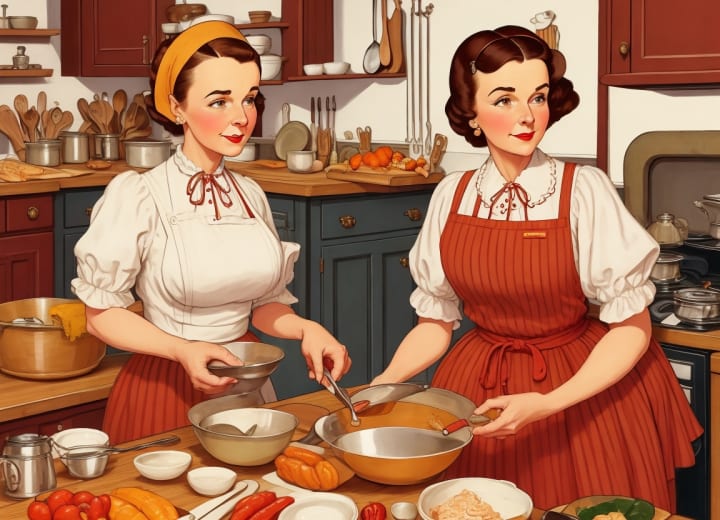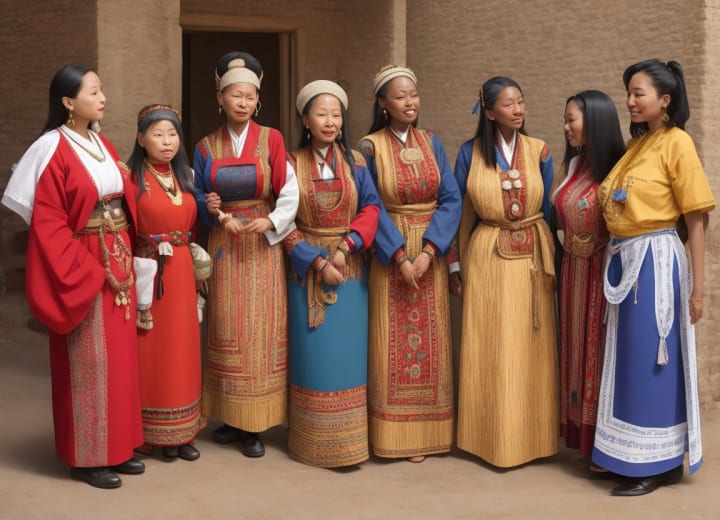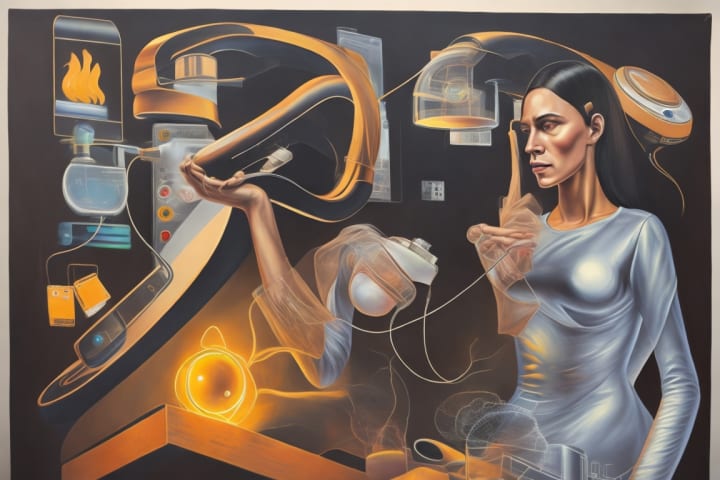The Metamorphosis of a Woman's Role
Changing Role of Women as Spouses in Modern Times

In an ever-evolving society, the concept of wifehood undergoes continuous transformation. This article delves into the historical context of the wife's role, exploring both traditional and modern perspectives, the catalysts behind the evolution, the influence of feminism, cultural and traditional factors shaping the wife's position, global outlooks, and predictions regarding future gender dynamics.
Introduction
Over time, the role of a wife has undergone profound changes driven by a complex interplay of social, cultural, and economic forces. This article aims to delve into the evolution of the wife's role in contemporary times, shedding light on the factors that have shaped these transformations and offering insights into the future of gender roles.
Defining a Wife
Traditionally, a wife referred to a married woman committed to a partnership. However, the definition of a wife has evolved significantly. In the present era, a wife's responsibilities extend beyond household affairs and attending to her husband's needs. She is expected to contribute equally to the family's financial stability and share in the responsibilities.
Historical Perspectives on the Wife's Role
In bygone eras, a wife's societal role revolved primarily around marriage and childbearing. Women were assigned the duties of homemaking, tending to the household and children, while their husbands labored to provide for the family. The wife's role was seen as subordinate to that of her husband, with her primary obligation being to ensure his happiness.
The Traditional Role of a Wife

The traditional role of a wife entailed supporting and nurturing her husband and children, conforming to the dictates of societal norms. She was responsible for domestic tasks such as cooking, cleaning, and childcare, while her husband played the role of the provider.
Characteristics of a Traditional Wife
The traditional wife embodied traits of submissiveness and obedience, prioritizing the needs of the family above her own. She fulfilled the roles of homemaker, caregiver, and nurturer. Her influence in significant family matters was limited, as she was expected to defer to her husband's decisions.
Traditional Gender Roles
Gender roles in the traditional sense were rigidly defined, with men assigned the role of providers and women confined to caregiving responsibilities. Men held the position of authority within the household, while women were deemed inferior and expected to be subservient.
The Modern Wife

In contemporary times, the role of a wife extends beyond domestic obligations. The modern wife is expected to contribute to the family's financial well-being and actively engage in pursuits outside of the home.
Characteristics of a Modern Wife
The modern wife is characterized as an educated and independent partner who adeptly balances work and home responsibilities. She is no longer required to be subservient to her husband, and her opinions hold weight in crucial family decisions. Rather than being a subordinate, she assumes the role of a partner to her spouse, while gender roles continue to shift towards greater fluidity.
Modern Gender Roles
In the modern era, gender roles are experiencing increased flexibility, as men actively participate in domestic responsibilities and women assume active roles in the workforce. The boundaries between traditional male and female roles have become blurred, with both partners sharing the responsibility of maintaining the household and providing for the family.
Striking a Work-Life Balance
The modern wife is tasked with achieving a delicate equilibrium between her career and family life. She is expected to fulfill the roles of a mother, a spouse, and a professional, making necessary sacrifices and skillfully navigating priorities to successfully manage these multifaceted responsibilities.
Factors Driving the Evolution of the Wife’s Role
Numerous factors have contributed to the ongoing evolution of the wife's role, encompassing economic and social transformations, enhanced educational opportunities and access to information, advancements in technology, and legal reforms that have paved the way for change.
Economic and Social Transformations
The modern era has witnessed profound shifts in the economic and social landscape. Women now have greater opportunities for workforce participation, challenging traditional gender roles. Consequently, the role of a wife has undergone evolution, with women assuming expanded responsibilities within the family.
Education and Information Accessibility
Education and access to information have played pivotal roles in shaping the wife's evolving role. Women have gained empowerment and knowledge, fostering increased gender equality. Education has been instrumental in helping women recognize their potential and pursue opportunities that were traditionally inaccessible to them.
Technological Progress
Technological advancements have significantly influenced the role of a wife. With the advent of the internet and social media, women have gained access to vast information and resources, enabling them to effectively balance their careers and household responsibilities.
Legal Reforms
Legal changes have played a momentous role in the transformation of the wife's role. Women now possess expanded legal rights, such as the right to vote, own property, and pursue employment outside the home. These legal reforms have been instrumental in shaping societal attitudes towards women's roles in society.
The Influence of Feminism on the Wife's Role

Feminist movements have played a pivotal role in transforming gender relations and redefining the role of a wife. Feminism advocates for gender equality, challenging long-standing patriarchal structures that have oppressed women throughout history.
Feminist Movements and Ideology
The feminist movement strives to achieve equal rights and opportunities for women. Its ideology posits that women and men should be treated with parity, and that gender roles should not be solely based on biological characteristics.
Impact on Gender Relations and the Role of a Wife
The feminist movement has brought about significant changes in gender relations and the role of a wife. Women now enjoy enhanced legal rights and improved social standing, while societal attitudes toward women's roles continue to evolve.
Cultural and Traditional Resistance to Feminism
However, not all sectors embrace the changes brought about by the feminist movement. Some cultural and traditional communities still exhibit resistance to feminism, particularly in religious and conservative contexts. Women within these communities may face oppression and discrimination, with limited access to education and knowledge about their rights.
Modern Marriage and Family Dynamics
Marriage and family dynamics have also undergone transformations in modern times, with shifting attitudes toward traditional marital structures.
The Evolving Institution of Marriage
Marriage has become more flexible and diverse, with non-traditional family structures becoming increasingly prevalent. Modern couples are forging their own rules and challenging conventional norms associated with marriage.
The Impact of Technology and Social Media
Technology and social media have exerted a significant influence on the institution of marriage, reshaping how couples interact with each other and the world. These changes have emphasized the importance of communication, openness, and honesty within relationships.
Non-Traditional Family Structures
Modern times have witnessed the rise of non-traditional family structures, such as same-sex couples and blended families. These families defy traditional gender roles, highlighting the fluidity and adaptability of gender in contemporary society.
Cultural and Traditional Influences on the Role of a Wife

Cultural and traditional influences hold considerable sway in shaping the role of a wife.
Cultural Perceptions of Women
Cultural perceptions of women exert a profound impact on the role of a wife. In many cultures, women are still bound by traditional gender roles, and those who seek to pursue non-traditional roles may face discrimination and societal barriers.
The Influence of Religion on Gender Roles
Religion also plays a significant role in defining the role of a wife. In certain religious traditions, women are expected to adhere to traditional gender roles, and those who deviate from these norms may encounter discrimination or resistance.
Traditional Family Structures and Gender Roles
Traditional family structures wield substantial influence over the role of a wife. In societies where patriarchal family structures prevail, women may be assigned traditional gender roles, irrespective of their personal aspirations or ambitions.
Global Perspectives on the Role of a Wife
The role of a wife varies across cultures and countries, reflecting diverse societal norms and values.
Cross-Cultural Comparisons
Examining the role of a wife through cross-cultural comparisons offers insights into how different societies perceive and define this role. Such comparisons help us grasp the nuances and understand the evolving nature of gender roles.
The Influence of Globalization

Globalization has had a profound impact on society, fostering the exchange of cultures and ideas. This has led to the emergence of new attitudes and perspectives on the role of women and the institution of marriage.
Anticipating the Future of the Wife's Role
Predicting future gender roles relies on multiple factors, including technological advancements, socio-economic changes, and cultural and traditional attitudes.
Predictions for Future Gender Roles
Gender roles in the future are expected to be more fluid and adaptable, emphasizing greater gender equality and shared responsibilities. Women are likely to continue making progress in the workforce, assuming leadership positions, and dismantling traditional gender barriers.
Harnessing Technology to Empower the Wife's Role
Technology will play a pivotal role in shaping gender roles in modern society. Innovative technologies that offer flexibility and mobility, such as remote work and online education, will empower women to balance their careers and family life effectively.
Discussing the Role of Future Generations
Future generations will hold distinct perspectives on gender roles and the role of a wife. They are likely to embrace more inclusive and accepting views regarding non-traditional family structures and gender roles, pushing the boundaries of societal norms.
Conclusion
The role of a wife has experienced significant transformations over time, influenced by social, economic, and cultural factors. These changes have propelled greater gender equality and challenged traditional gender roles. Looking ahead, the role of a wife is expected to be more adaptable, with women assuming greater responsibilities both in the workforce and within the family.
FAQs
What does the role of a wife entail in modern times?
In modern times, the role of a wife is multifaceted, requiring women to balance work and family responsibilities. Modern wives are expected to be independent, educated, and contribute to the family's financial well-being.
What factors have contributed to the evolution of the wife's role?
The evolution of the wife's role has been influenced by various factors, including economic and social changes, access to education and information, technological advancements, legal reforms, and the impact of feminist movements.
How has feminism impacted the role of a wife?
Feminism has had a profound impact on the role of a wife, challenging traditional gender roles and advocating for gender equality. It has expanded women's legal rights and reshaped societal expectations, enabling women to pursue diverse and non-traditional roles.
What does the future hold for the role of a wife in society?
The future of the wife's role is expected to be more flexible, with a stronger emphasis on gender equality and shared responsibilities. Technological advancements will play a crucial role in enabling women to navigate work and family commitments. Future generations are likely to challenge and redefine traditional gender roles further, embracing new perspectives on gender and family structures.
About the Creator
Mohammad Imran
✍️ Imran 🌟 Passionate content creator
📺 Sharing captivating stories and insightful perspectives
📝 Words that inspire and entertain
💡Join me on this creative journey! 🌍✨






Comments
There are no comments for this story
Be the first to respond and start the conversation.